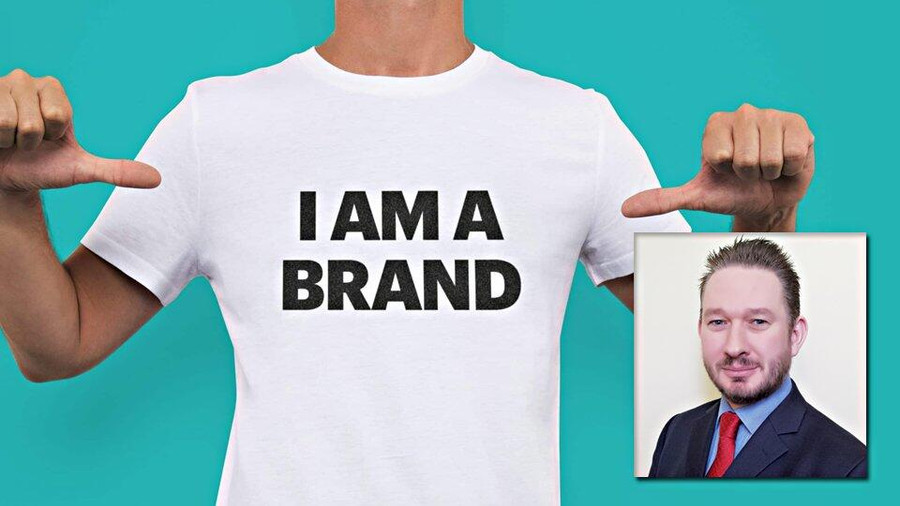Unless you’ve been living under a rock or in a cave for years, you can’t have ignored the hullabaloo around “personal branding.” The young, hip and trendy have all been jumping on the bandwagon, “developing” their “brand identity” as have some older peeps for good measure. But is it all hype and not enough substance? Is it another online fad to be kept at arm’s length by less-swayed souls?
Like a great many things in life, the truth is probably to be found somewhere in the opaque middle ground.
Even if we don’t actively seek to nurture or manage it ourselves, somebody else will be forming an image (accurate or otherwise) of us.
While some people are completely gung-ho with the idea of building their own personal brand (probably a great many of these are smartphone-carrying members of “Generation Selfie”) and see it as completely natural but nonetheless essential, there are others who couldn’t care less about picking up a camera phone and waxing lyrical about what’s on their mind, all in the faint hope that it’s going to somehow transform their business.
Alas, whether we like it or not, we’ve all got a personal brand. Even if we don’t actively seek to nurture or manage it ourselves, somebody else will be forming an image (accurate or otherwise) of us. Personally, I’d rather be doing what I can (within reason) to manage my image rather than let it be determined by either the world at large, or search engines. Perhaps that’s just me.
But if you’re proud of the industry you’re in and you’re intrinsically attached to it (perhaps you’re a sex toy store owner or Etsy-selling artisan dildo maker) then if you’ve not already taken steps to create “Brand You,” perhaps it’s best to get started. You’ll possibly be already running a corporate brand, with Instagram and Twitter accounts for each. Now it’s time to do the same with your personal brand. It’s time to officially “invent” yourself. Position yourself. Establish yourself. Then promote yourself — often (but not to the point of obsession — where’s the fun in that?)
Think of branding as the art of making yourself unique so you won’t be confused with anyone else. When differentiating yourself from others, you need to look beyond the obvious qualities that others may also claim to possess.
When your brand is conceived and managed effectively, it makes the second part of the equation — positioning (the hole you fill, or position you occupy, in the minds of others) — simpler.
Establish your brand vision. What do you want to achieve from your adventures in lingerie or sex toyland? Be clear and specific. Scratch your head as often as required to reach your conclusion. After all, if you don’t know what you want, how will you know when you’ve arrived?
Mark your brand territory. If you try to become Jack (or Jill) of all trades, you invariably become a master of none. You cannot appeal to everyone, nor should you try.
Establish your brand identity; sort your name out and how you want to be known as. Yes, of course your real name is absolutely fine. But just like in LinkedIn where there’s room under your name for you to include a quick summary (or if you’re savvy, your own positioning statement), you should be thinking about an accompanying description. If you can’t think of something catchy right now, use a Morphological Box to help you with the process. It’ll work wonders, believe me.
But brand identity is much more than mere names. Your website, social networking profiles, and business card all need to sing from the same song sheet. There must be absolute consistency in the image projected — colors, typefaces, slogan (known as a strapline), memes, pictures — everything!
Think about each time you walk out the door. Do your clothing, footwear and makeup reinforce the brand identity you’ve created? It’s no use positioning yourself as a sexy lingerie designer and putting forward the mantra that you’re “living the brand” if you’re uploading pictures of yourself slobbing out in your sweat pants, or picking your nose. Do you think Dita Von Teese ventures outside wearing trainers (that’s “sneakers” to anyone across the pond) and a hoodie? Of course not. Her enduring goddess-like image would be jeopardized in one fell swoop. The damage to her brand would be instantaneous and incalculable.
And while I’m talking about Dita, look at her Instagram account. There’s not one image of her looking anything other than elegant, glamorous and in some cases, downright alluring. Do you think you’re going to see her uploading pictures of her being drunk and disorderly in a restroom, or a #messyhairdontcare selfie anytime soon? You’re having a laugh, right?
“But it’s being genuine,” I hear you cry. “It’s authentic. It’s people seeing the real me.”
Yes, well here’s the deal. We all burp, fart, pick our noses, and sit on the toilet. We wake up with our hair looking like we’ve been dragged through a hedge backwards (or is that just my particular talent?) That doesn’t mean to say any of this should be documented and shown to the world, does it?
It might very well be you, warts and all, but to what extent is this helping your brands — personal and corporate? Think before you take that (self-validating) selfie in your quest to add some “content” to your social media timeline. By all means be genuine. But that doesn’t mean you have to document every single aspect of your life in a rather vain attempt for attention and perhaps, just perhaps a subsequent sale.
Remember as well: actions and behavior speak louder than words. People can spot fakes. Don’t try to be a larger-than-life extrovert on social media when you’re really rather shy and introverted in person. Be yourself, be authentic. Besides, introverts can be captivating and sexy too. It’s all about playing to your strengths.
What are your brand values? “Brand YOU” requires that you live, eat, breathe, and other things in this persona. You’re living your brand values. But what are these values? What do you stand for?
And now, it’s time to mention your brand positioning: how you’re perceived by others. This is one of the most important aspects of your personal brand building. Ask yourself what three words you’d like used to describe yourself. What’s the one thing you’d like to be remembered for?
In years gone by, marketers would have told you to have a “positioning statement” (a bit like an elevator pitch) always at the ready for when you bump into someone at a networking event. However, you’d be well advised to go one step further and heed the words of business development guru Michael Port. Don’t just have a statement ready: have a five-step dialogue prepared. After introducing yourself, tell people: who you help; what their biggest needs are; how you help them; the key benefit they receive from this; and other deeper benefits gained.
Doing this is advantageous for two reasons. Firstly, it shows you know exactly what you’re about and what you’re doing. Secondly, it ensures that anyone you mention it to is left in no doubt as to your qualities and capabilities. In other words, what position you’ll now occupy in their mind.
Admittedly, it’s quite hard to summarize all of the above. But if in doubt, be true to yourself and remember those positive brand values both to your followers and to industry peers. And be consistent. And don’t forget: perception is reality.
What’s also beyond doubt is that if you have a distinctive brand and unique positioning, you’ll see the results. You’ll make a bigger impact. You’ll be more recognizable. And you’ll probably be more successful.
Now, just in case you think you’ve got to drop everything in order to start your own personal brand building, a cautionary note to the wise. If you’ve got SEO responsibilities in your company, you’ll have surely come across Neil Patel, whose SEO website and blogs are a go-to resource. You’ll see a video from him all about how to develop your personal brand. And well worth viewing, it is too.
But wait: if you look around his website, you’ll find another long blog post explaining why Neil now regrets the growth of his personal brand arguably at the expense of his corporate agency brand. Why? His personal brand revolves purely around him and his contribution, whereas there’s much more earning opportunities to be had with a powerful corporate brand. Food for thought, for sure.
If you’re responsible for building your own brand and building a company brand, it does make sense to build both. It seems rather prudent too. All you have to decide upon is the level of effort expended on both at any given moment. Welcome to the Brand (new) You.
Brian Gray is the founder and head consultant at Lascivious Marketing, based in Glasgow, U.K. With two decades of marketing experience in a variety of roles and industry sectors, Gray helps manufacturers, wholesalers and retailers in the erotic industry improve their marketing performance through strong brand creation, better customer understanding and insight, tailored marketing planning and communications through focused effort. He was also the founder of the XBIZ.net London Gathering networking events back in 2010.Gray can be contacted at lasciviousmarketing.com, found on Instagram @LasciviousMarketing or phoned on +44 (0)141 255 0769.








